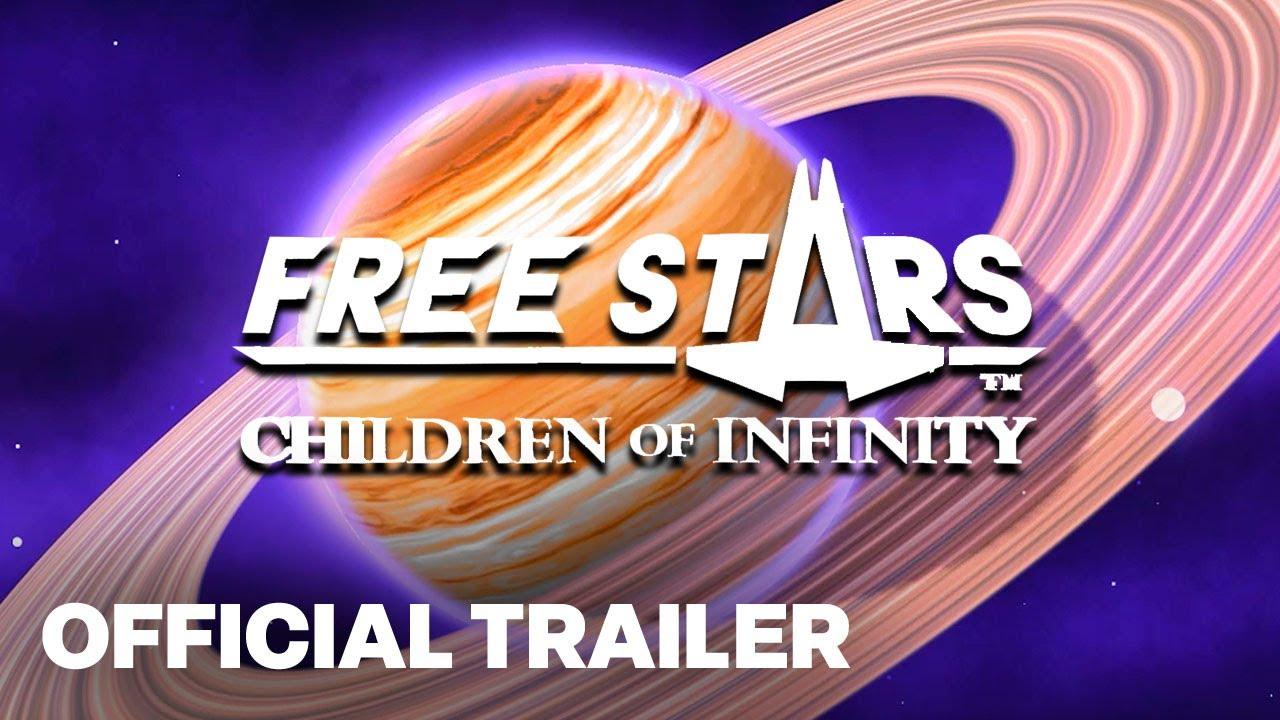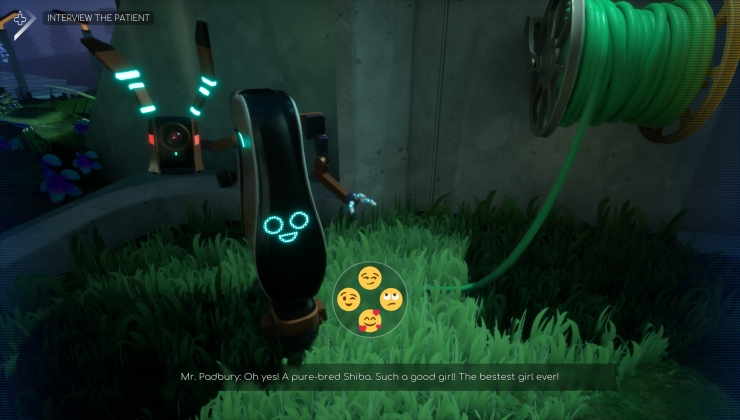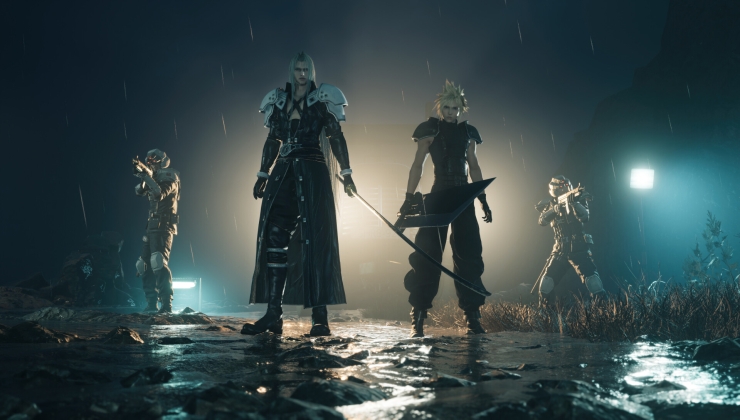Well that really was fast. Free Stars: Children of Infinity, the sequel to The Ur-Quan Masters (Star Control 2) is now confirmed to be supporting Linux (and macOS).
The Kickstarter campaign has only been up for just over a day and it's already managed to pull in over $240,000 in funding. This means the $220,000 stretch goal for Linux and macOS support has been achieved as confirmed by the developer. Since it also passed $240K, it will also now see a DRM-free PC release as well so that's double good news. It's not confirmed what DRM-free stores they will put it on but their announcement mentioned possibilities being itch.io and GOG.

Direct Link
The campaign still has a whole 29 days to go with extra stretch goals including more languages, local co-op, console ports, English voice over and if they somehow hit $4.4 million they will open source it all.
See more on the Kickstarter.
Awaiting the good ole "but it works on Proton" moment.
As much as I want to, I'll believe it when I see it. Too many broken promises by greedy/lazy publishers.The statement on the Kickstarter campaign page says that, if they hit the goal -- and it's far, far higher than any of their other stretch goals -- they'll open the source code 2 years after release. That seems feasible and practical.
Also, I believe they're both developer and publisher, although I might be wrong on that last part.
Oh and I hope the DRM-free releases won't be Windows only of course... look what others did...
Last edited by Cyril on 18 Apr 2024 at 2:51 pm UTC
Last edited by Purple Library Guy on 18 Apr 2024 at 5:05 pm UTC
really happy to see this anyways, hope it all works out!
.b
... so I don't see why it wouldn't be possible to just export to linux as well as other platforms Godot supports..Exporting to Linux with any given cross-platform engine is easy. Almost automatic if you don't approach it in a totally foolish way.
Actual support, however, with people maintaining builds and providing assistance with potential platform-specific issues, requires actual commitment.
Which is why I am very much against platform support as a KS stretch goal.
Platform support is not a "we'll throw 10k at the problem and then it's done" kind of deal.
It has a distinct smell of someone not understanding the actual problem and just trying to throw money at it.
Godot is a highly stable engine with cross-platform built into it from the get-go, however.
And World Of Goo not exactly a game that will push graphical boundaries.
So that should keep the chances of platform-specific issues rather low. Hopefully.
Last edited by TheSHEEEP on 18 Apr 2024 at 8:35 pm UTC
Godot is a highly stable engine with cross-platform built into it from the get-go, however.This isn't the World of Goo thread, but what you've said probably applies here.
And World Of Goo not exactly a game that will push graphical boundaries.
So that should keep the chances of platform-specific issues rather low. Hopefully.
In this case I suspect they'd have ended up doing it anyway, and were in any case pretty near 100% confident they'd hit the lower end stretch goals, but you have to pad the list or it looks way too sparse.
I think there's an art to doing these goals + stretch goals. You want to make the base goal sound substantial but be something you're pretty sure you can easily reach, so you can impressively blow through the first few "stretch goals" and it will be exciting. And if you have that expectation, you want those first few "stretch goals" to be things you are totally planning to do and know how to do them--really part of the base plan, just nice features that look good as goals. Then the middle goals can be things that you wouldn't mind doing but you'll have to hire someone, ideally with fairly predictable costs--so like this game as you get up into the middle has stuff about different language support, which basically involves paying a translator to translate a known amount of stuff. At the high end you can have aspirational stuff that might actually be difficult but if you have gobs of money what the heck. So in this case, Linux is in those early "They totally knew they'd raise that money" stretch goals, meaning it was probably in the plan all along.
Obviously I can't prove any of this, it's just my impression of how this stuff would be done.
Last edited by Purple Library Guy on 18 Apr 2024 at 9:30 pm UTC
This isn't the World of Goo thread, but what you've said probably applies here.What the hell, apparently my thinking pipes were still clogged with goo!
But yeah, still applies indeed.
I think there's an art to doing these goals + stretch goals. You want to make the base goal sound substantial but be something you're pretty sure you can easily reach, so you can impressively blow through the first few "stretch goals" and it will be exciting. And if you have that expectation, you want those first few "stretch goals" to be things you are totally planning to do and know how to do them--really part of the base plan, just nice features that look good as goals. Then the middle goals can be things that you wouldn't mind doing but you'll have to hire someone, ideally with fairly predictable costs--so like this game as you get up into the middle has stuff about different language support, which basically involves paying a translator to translate a known amount of stuff. At the high end you can have aspirational stuff that might actually be difficult but if you have gobs of money what the heck. So in this case, Linux is in those early "They totally knew they'd raise that money" stretch goals, meaning it was probably in the plan all along.I don't really agree here.
The majority of stretch goals across KS and similar are indeed "throw money at the thing once and it will be done". Added features and more content for the most part with no or negligible effort past initial implementation.
Platform support is a notable exception here, but also things like additional languages, because those, too, require maintenance cost as games are updated.
Of course, I don't know if the devs plan to update and expand their game much beyond launch.
They might also have the idea that "if we get this much on KS, the commercial release will likely yield enough to maintain our goals", which... well, good luck to them! Given the smashing KS success so far, it might work out.
That's just not my general KS experience at all.
Last edited by TheSHEEEP on 19 Apr 2024 at 6:37 am UTC
Our proprietary codebase is entirely written in C++ and is very portable. The engineer (Fred Ford) who is developing it has a compilation strategy and essentially knows all the steps required to get things working on Linux.
The biggest unknown is honestly Godot. Because Godot, itself, is open-source and has a lot of proven Linux support, we're much less concerned about native Linux support for this than with a closed-source engine. If there's any snags we think we might hit, that's where they'll be, but we've budgeted cautiously and accordingly. We really, really want to make this happen.
What will help the Linux port succeed is a diverse set of test hardware and early testing. Luckily, I have access to a number of test devices, and with our community being pretty active in Linux thanks to the open-source Ur-Quan Masters releases, we feel confident we'll be able to get the feedback loop going early.
I hope this helps answer some questions and build some confidence. There's a reason we put that completely open source release goal on there, too. The Ur-Quan Masters has been kept alive because of the FOSS mentality and community. We really wouldn't be here today with so much community support if the game wasn't actively maintained. Fred, especially, has had a long and satisfying career. So long as we can financially support our next projects, we would rather find ways to give back and enrich the game development and gaming community.
Oh, and someone asked if this is a publishing decision. Not really. We are the sole developer and we are currently self-funding and self-publishing. We're supporting Linux because _we_ want to!
I hope this helps answer some questions and build some confidence.
Absolutely!
We're supporting Linux because _we_ want to!
I guess that's the one reason to support native Linux nowadays. "It will make us rich!" is less common for sure. ;)
Good luck with your endeavour!








 How to set, change and reset your SteamOS / Steam Deck desktop sudo password
How to set, change and reset your SteamOS / Steam Deck desktop sudo password How to set up Decky Loader on Steam Deck / SteamOS for easy plugins
How to set up Decky Loader on Steam Deck / SteamOS for easy plugins
See more from me